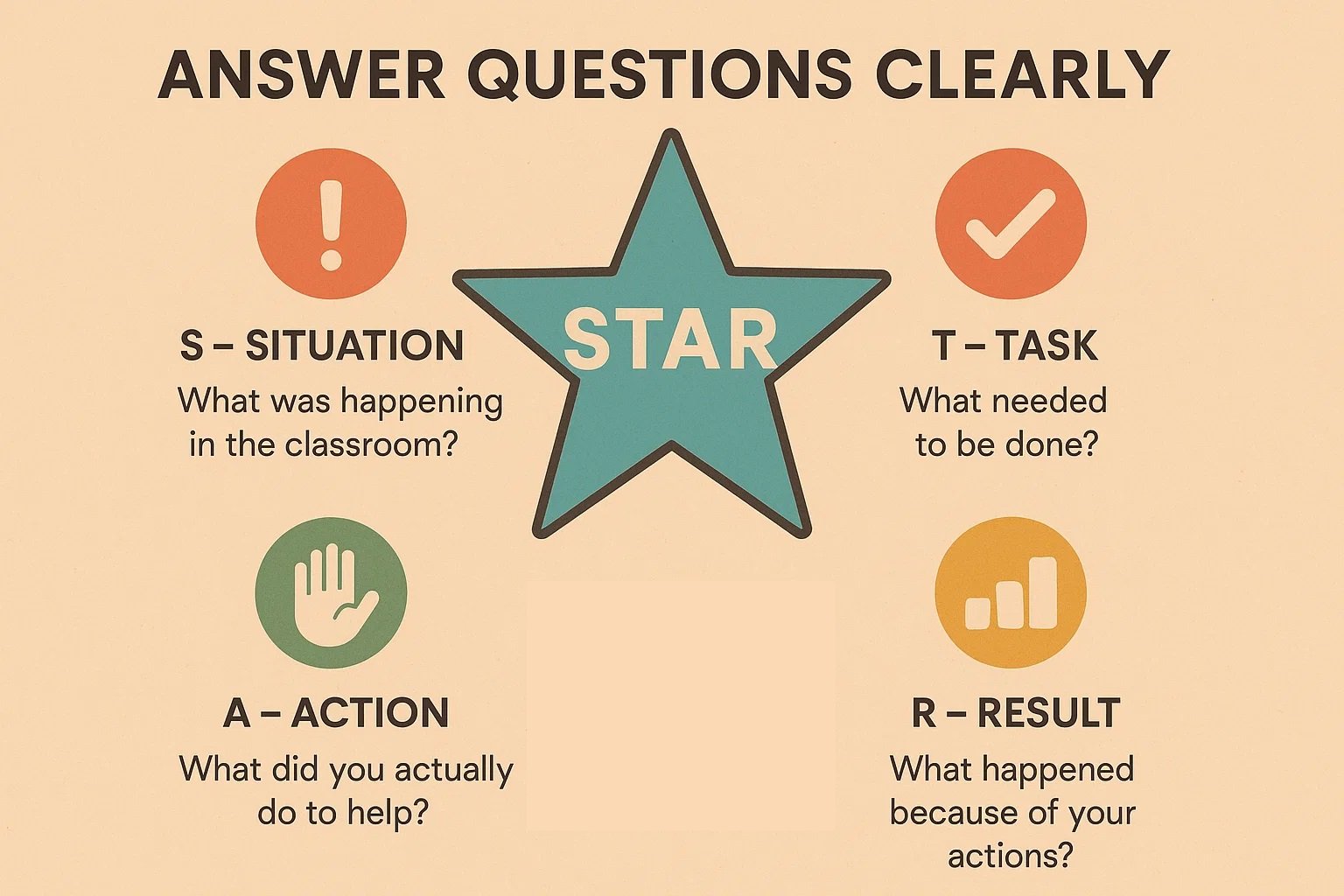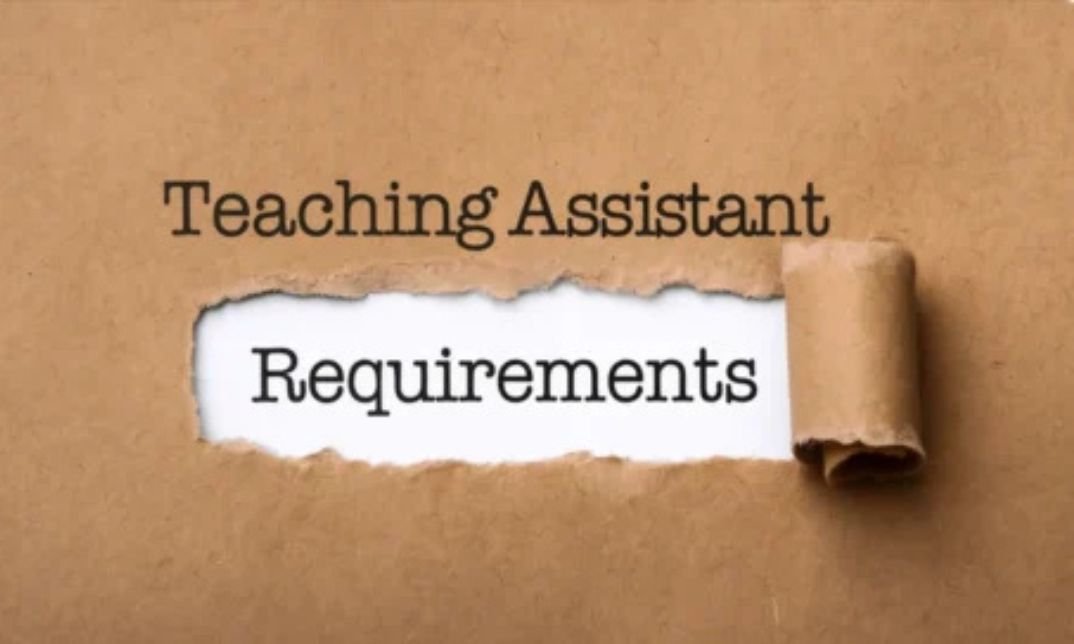No products in the cart.
Can a Teacher Become a Teaching Assistant? Absolutely! Many teachers make the switch, and all your classroom experience really comes in handy. For example, some do it to get a bit more balance in life, or to take a break from the usual hectic teaching routine, while spending more time actually helping students. So, it’s not going backwards – it’s a chance to use your skills in a new way, support learners, and enjoy seeing the classroom from a fresh perspective.
In this guide, you’ll discover:
- Why teachers move into TA roles
- How to apply and showcase your experience
- What a TA does day-to-day
Keep reading for clear, practical tips and easy steps to smoothly transition from teacher to TA.
Why Teachers Choose the TA Route

Many teachers move into TA roles to get more balance in life, do less paperwork, and spend more time helping students. For example, some step back after feeling burnt out or needing a break, so they can recharge but still stay connected to the classroom. Meanwhile, others try it to learn about SEN support or early years before going back to teaching. Being a TA gives you a fresh view of the classroom, lets you work closely with students, and pick up useful skills like running small groups, managing behaviour, and helping each child in your own way.
Can a Teacher Become a Teaching Assistant?
Absolutely! Many schools love having ex-teachers because you already know how classrooms work. For example, your QTS can help support SEN students, run small interventions, or cover HLTA duties. At the same time, it’s important not to overplay your experience. Think of it like this: you’re there to help and support, not take over. And when you show your skills correctly, schools see you as someone who can make a real difference from day one.
What Does a Teaching Assistant Do Day-to-Day?
A teaching assistant helps the classroom run smoothly and supports both teachers and kids. For example, you might work with small groups, help a child one-on-one, or do light tasks like getting resources ready and keeping things tidy. Also, if you’re working with SEN kids, you focus on their extra needs and give them additional help. At the same time, you don’t plan lessons or take full responsibility—that’s the teacher’s job. And you also help manage behaviour, keep the day moving, and work with other staff, therapists, or parents to make sure everyone’s learning stays on track.
Do You Need TA Qualifications If You’re Already a Teacher?

If you’re already a teacher, you usually don’t need extra TA qualifications because your QTS or PGCE already covers most of what’s expected. However, picking up a few additional skills can really help, like safeguarding, first aid, autism or SEN certificates, phonics training, or behaviour support. For example, HLTA (Higher Level Teaching Assistant) training can be useful if you want to take on more responsibility, like covering lessons or leading small groups. And even if it’s not required, having these skills can make your work easier and give you more confidence in the classroom.
Pay, Hours, and Contracts—What to Expect
As a TA, your pay usually depends on the school and your experience. For example, most TAs are on term-time only contracts, which means your pay is adjusted for holidays. Also, your day might include classroom work, lunch duty, and sometimes after-school clubs. And you could work directly for a school or through an agency—direct contracts give more stability, while agency work can offer more flexibility. Plus, knowing the basics about payslips and holiday calculations helps you to avoid any surprises and gives you peace of mind.
How to Apply (Step-by-Step)
Here’s a simple roadmap to help you apply for TA roles without missing a step:
- First, pick your phase (EYFS, primary, secondary, FE, SEN)
- Next, get DBS and references ready
- Then, tweak your CV & cover letter for a TA role
- After, searching jobs on LA sites, MATs, schools, or agencies
- Finally, check deadlines and use a quick checklist
CV & Cover Letter—Reframe Your Experience
When you’re applying for TA roles, it’s all about showing how you help students and the classroom. For example, focus on outcomes like behaviour management, small-group progress, and running interventions. Also, ditch leadership jargon and add TA-friendly keywords that show you’re ready to support the team.
Here are 3 short examples you can use in your CV:
- Helped small groups of students improve reading and writing skills
- Supported behaviour management to keep lessons calm and focused
- Assisted individual students with personalised learning tasks
Interview Prep (Common Questions & Great Answers)

Preparing for a TA interview is easier when you know what to expect. For example, you might get questions like:
- “How would you support a child with additional needs?”
- “What does good safeguarding practice look like?”
The trick is to use a simple STAR framework to answer questions clearly.
- S – Situation: What was happening in the classroom?
- T – Task: What needed to be done?
- A – Action: What did you actually do to help?
- R – Result: What happened because of your actions?
For example, this lets you tell a quick story showing how you’d handle real classroom situations. And by keeping it focused on support and outcomes, you’ll show schools you’re ready to step in and make a difference from day one.
Classroom Confidence in Week One
Starting as a TA can feel a little scary at first, but a few simple steps can help you settle in. First, chat with the class teacher to agree on routines and get familiar with seating plans and visual timetables. Then, try some quick wins like using mini-whiteboards, giving clear signals for transitions and praising students often—it really helps the class feel calm and focused. Make sure to connect with parents and other staff, like the SENCo or therapists, so everyone works together and the students get the support they need.
Progression Pathways from TA
Being a TA can take you in lots of directions. For example, you could train as an HLTA or cover lessons when needed. Also, you might focus on SEN, become an ELSA, or help with speech and language support. And if you ever want to go back into teaching, all the skills you pick up as a TA will make the transition much easier and give you more confidence in the classroom.
Ready to explore even more opportunities? Read our blog article “Can a Teaching Assistant Work in a Nursery in the UK 2025?” to learn and get easy tips to support little learners with confidence!
Work–Life Balance Reality Check
Being a TA can really help you get a better balance between work and life, but it’s good to know what you’re getting into. For example, your schedule can look very different depending on whether you’re in EYFS, primary, or secondary. Also, some days can feel really busy while others are quieter and your pay might not always match the effort, so it helps to keep your expectations realistic. And if you’re on term-time only pay, a handy tip is to plan your budget around the school year so you’re not stressed during the holidays.
Challenges of Being a Teaching Assistant
Being a TA is really rewarding, but it does come with some challenges, especially compared to being a teacher. For example, you don’t get to make all the lesson plans or big classroom decisions—you’re usually following the teacher’s lead. Also, while teachers focus on planning, marking and running the class, TAs are juggling lots of hands-on tasks like helping individual students, supporting small groups, and keeping the classroom running smoothly. And because you’re not the main teacher, it can sometimes feel tricky to know when to step in or speak up.
Still, these challenges are part of what makes the role so meaningful. You get to connect with students up close, make a real difference in their learning, and pick up skills that help you grow every day.
FAQs
- Can you become a teacher as a teaching assistant?
Yes! Being a TA is a great way to gain classroom experience before training or qualifying as a teacher.
- How much does a teaching assistant get paid in the UK?
It depends on experience and location, but most TAs earn between £20,000 and £28,000 full-time, with term-time pay usually pro-rata.
- How long does it take to qualify as a TA?
You can start working as a TA with basic training, but formal qualifications typically take a few months to a year, depending on the course.
- How to go from being a TA to a teacher?
Gain experience, then complete teacher training (like PGCE or school-led routes), and get QTS to become a qualified teacher.
- Can a TA legally teach a class?
No, TAs can support learning and lead small groups, but only qualified teachers can take full responsibility for teaching a class.
- Can I be a TA with no experience?
Yes! Schools often hire beginners, especially if you’re enthusiastic, willing to learn, and have basic skills working with children.
Final Thoughts
So far, many teachers have successfully made the switch, showing that a teacher can become a teaching assistant. And with your classroom experience, you can spend more time helping students, do less paperwork, and enjoy a better work–life balance. Plus, it’s not a step back—it’s a fresh way to use your skills, support learners, and keep growing while making a real difference every day.
And if you’re ready to get started, why not take the next step today? At Open Learning Academy, our Teaching Assistant course gives you all the knowledge and confidence that you need to succeed.
Join now and be the reason children believe in themselves.




